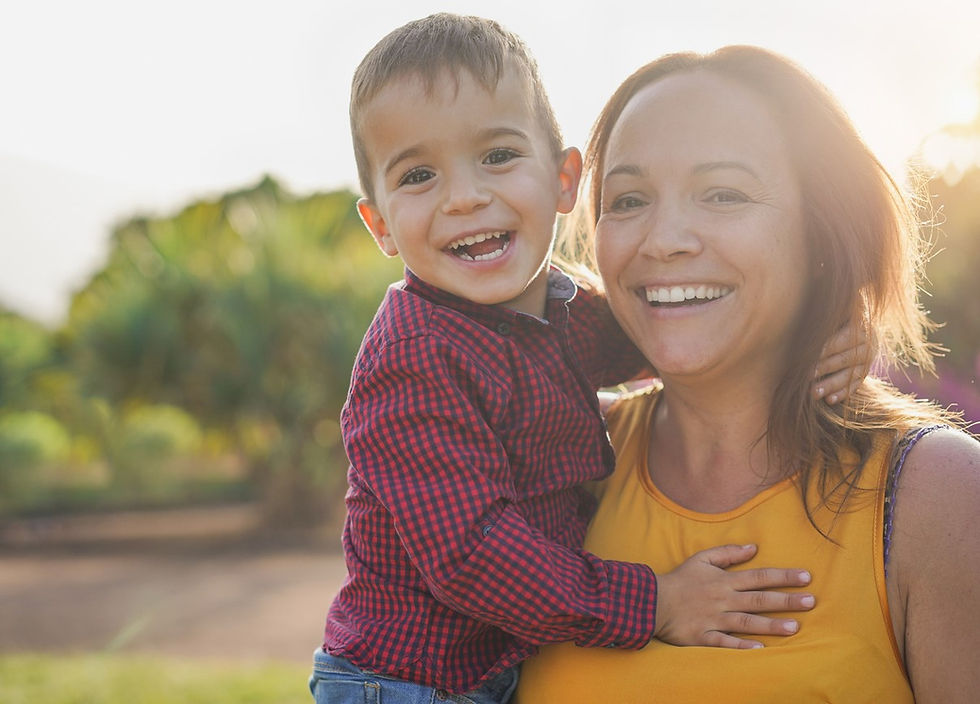When Can I Leave My Child Home Alone?
- Nicole Young
- Jul 3, 2015
- 4 min read
Updated: Nov 16, 2021
Happy summer? Yes, that’s a question. Like many working parents, I’ve been awaiting summer vacation since school started last fall. I breathed a sigh of relief on the last day of school, then the reality of summer scheduling sank in. With two full-time working parents in our family, we have to make sure our kids are in safe, supervised places during the day. Their different ages, interests and maturity levels means they’re often in different places at different times, which makes my color-coded calendar look like a patchwork quilt.
This monthly column provides tips for anyone who is helping raise children, based on the world-renowned Triple P – Positive Parenting Program, available to families in Santa Cruz County. If you have a question or idea for a future column, please email me at triplep@first5scc.org.
Dear Nicole,
My wife and I are wondering how old kids should be before they can be left at home alone. We both work full-time, and our 12-year-old daughter wants to stay home instead of having a babysitter. She’s responsible, but we’re nervous about leaving her alone. Is she too young?
- Margaret
Dear Margaret,
I’ll bet many other working parents with “tweens” wonder the same thing. As with most parenting questions, the answer is, “It depends.” The age at which a child can be left home alone will vary based on several factors, including:
The child’s age, maturity level and abilities.
How long s/he will be alone and the time of day.
How far away the parent(s) or another trusted adult will be.
How the child feels about being home alone.
The child’s ability to understand and follow rules.
The safety of the home and neighborhood.
The child’s knowledge of what to do in an emergency.
When your family decides the time is right, try these tips to build your child’s (and your) confidence in her ability to be safe and responsible at home alone.
Prepare in advance. Make sure your child knows her full name, address and phone number. Review a list of people and phone numbers to call if she needs help. If you know and trust your immediate neighbors, let them know your daughter will be home alone and ask if they can be a resource.
Develop a safety plan. Remove or lock up items that could be health or safety risks for your child, including medications, alcohol, tobacco products and weapons. Teach your child how to safely use appliances and other kitchen equipment.
Talk with your child about what to do in an emergency (e.g. earthquake, fire), and what to do when someone comes to the door or calls the house. Have your child write down the steps to take in each of these situations. As you discuss different scenarios, ask who she would contact for help and at what point she would seek help. You might even want to role play a variety of situations to help her develop valuable problem-solving skills and give you reassurance she’ll be able to handle unexpected situations.
Establish ground rules for when she is home alone. Talk with your child about rules such as the amount of screen time allowed, chores to be completed each day, and whether friends can come over. Keep the rules simple and pick ones you’ll be able to monitor. Have your child write the rules down and post them in a visible place.
Schedule check-in times. Make an agreement about when and how you will check in during the day via calls or texts. You might decide to check in more often when you begin leaving her home alone, and then reduce the check-ins as you all gain confidence about her safety and responsibility.
Start small, then work up to longer periods of time. Try leaving your child home alone for a short time as a “trial run.” Review the rules and safety plan before you leave, then review how things went when you return. Give descriptive praise for following the agreed-upon plan. Gradually stay away for longer or go farther away from home, until you all feel she can be home alone when you and your partner are at work.
Final Thoughts: Deciding whether a child is old enough to be home alone can be a big, scary parenting task. We can prepare our children for independence by carefully assessing their readiness to be home alone, and then teaching them skills to be safe and responsible.
Nicole Young is the mother of two children, ages 11 and 15, who also manages Santa Cruz County's Triple P - Positive Parenting Program, the world's leading positive parenting program. Scientifically proven, Triple P is made available locally by First 5 Santa Cruz County, the Santa Cruz County Health Services Agency (Mental Health Services Act) and the Santa Cruz County Human Services Department. For more information, including classes and one-on-one meetings to help parents handle everyday parenting challenges, visit http://triplep.first5scc.org, www.facebook.com/triplepscc or www.youtube.com/triplepsantacruzco. To find a Triple P class or practitioner, contact First 5 Santa Cruz County at 465-2217 or triplep@first5scc.org.





Comments